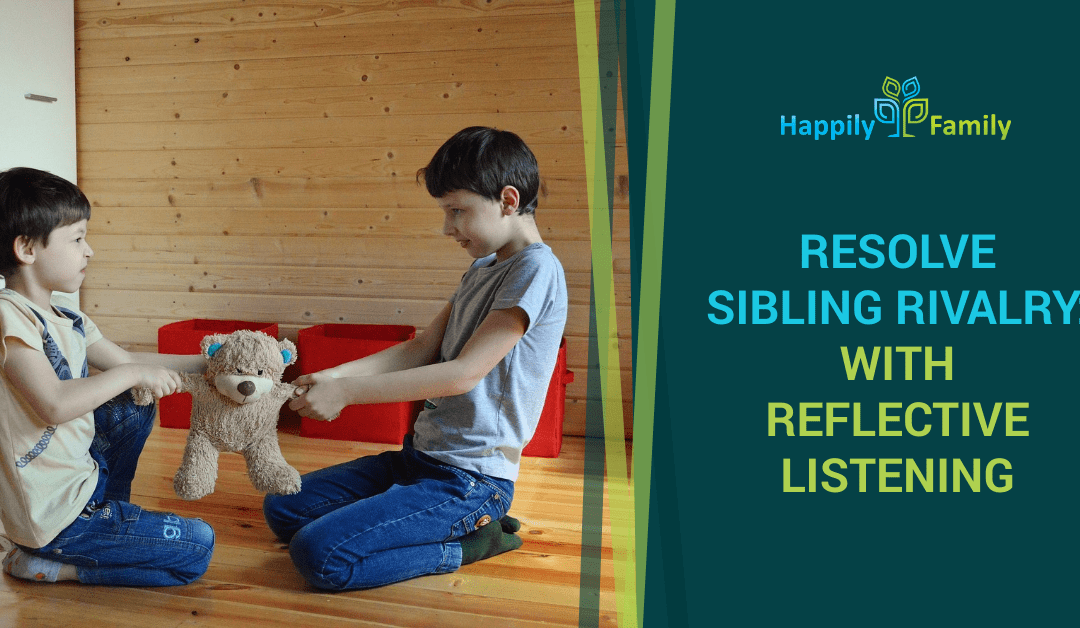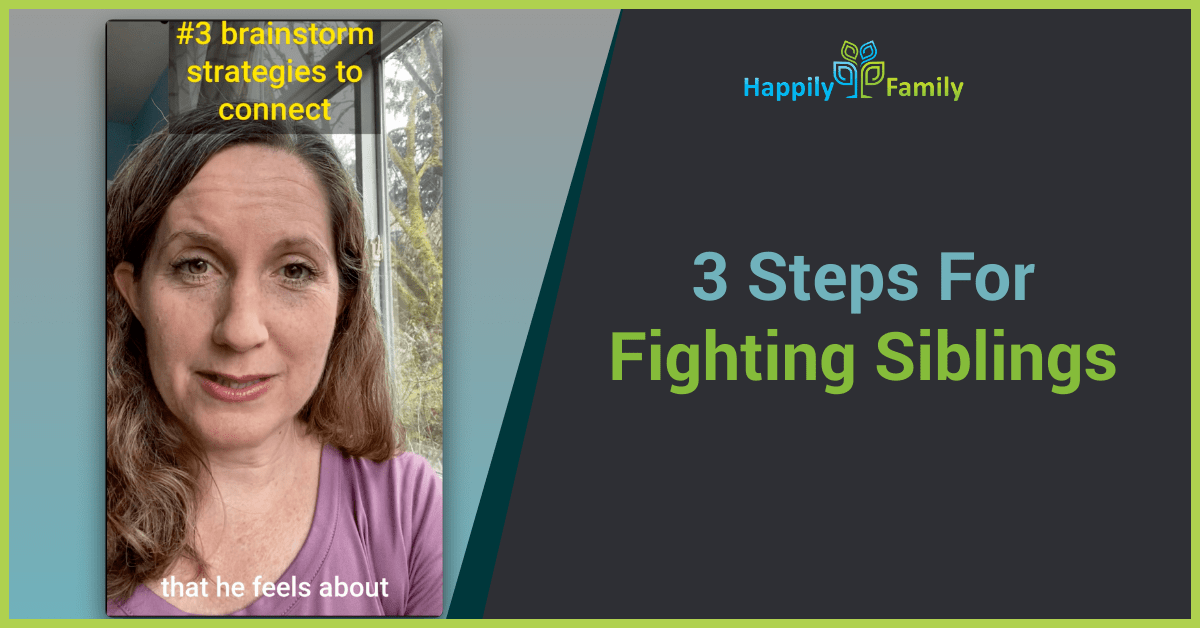Recently a parent told us…
My son is always belittling my daughter, shouting at her and dismissing everything she says. Whenever I try to give him advice on how he should behave or protect her, it escalates things, and he always complains that it's because “she has started it”, ” she is your favorite child” or “of course, you hear her”.
As a parent, it’s understandable to want to help our kids by offering advice, telling them how they should behave, and even lecturing. We want to help our kids and be supportive. We want our kids to play nicely and respect each other. Most of all we want the fighting between the kids to stop!
How can you respond to your kids if your advice and help end up escalating things, and the complaining and fighting continue?
The answer is… Reflective Listening. The steps below are inspired by a conversation that we recently had with Dr. Ross Greene.
Your goal is not to take sides or even to solve the problem. Rather your goal is to make sure that your kids feel understood and empower them to figure out a solution. Even if you think that one child is the “victim” and the other is the “instigator”, Reflective Listening is to understand the perspective of both kids, without judgment. Make sure you practice Reflective Listening with both children.
Reflective Listening will help you understand your child’s perspective, learn about their unsolved problems, and build your relationship. It’s easiest to practice Reflective Listening with your child when you are in a proactive conversation (e.g. not in the “heat of the moment”). If you ARE in the “heat of the moment” here is a resource about what to do about siblings fighting.
Bonus: In addition to practicing Reflective Listening with your child, you can also use it with your spouse, friends, or co-workers too.
There are 3 Basic Steps to Reflective Listening:
1. Encourage
Practice Reflective Listening with the following prompts:
- “Tell me more about that.”
- “What happened before/after that?”
- “How was that for you?”
2. Mirror
- Repeat back what your child says.
- E.g. Your child says, “I really want that toy.” You say, “I hear that you really want that toy.”
- This step may seem a little awkward or robotic at first. By practicing it in a proactive conversation with your child, you get a low-pressure chance to try it out and see how it works for you.
- Tip: We don’t recommend using mirroring when a child says something hurtful about themselves or another person, e.g. “I hate my sister” or “I’m so stupid.” In these situations, summarize instead.
3. Summarize
- After your child has had a chance to speak, summarize the meaning of their words.
- E.g. your child says, “I hate my sister. She’s so annoying. She won’t share her toys.” You can say, “That makes sense you wish she’d share. You feel annoyed when she won’t let you play with her toys.”
- Tip: Be careful with summarizing, it’s often not helpful to offer your own interpretation, to lecture, or to give a solution. E.g. avoid saying things like, “No you’re wrong, you don’t hate your sister, you love her.” or “Stop making this such a big deal, you can use that toy next time.” or “Well, if you shared with her more often, then surely she’d share with you. You need to be more generous.”
A Final Word
In our experience, most of the time children can figure out how to solve their problems without our lectures, advice, or solutions. But sometimes, even after Reflective Listening, a child won’t know what to do next to solve the conflict. If your child gets stuck, then ask
- “What ideas do you have for this problem?”
- “Is there anything I can do to support you?” or “How can I help?”
- “Would you like to hear some of my ideas?”
Reflective Listening might be a brand new way to parent and it might take some practice.
If you have any questions about how to use Reflective Listening or if you try this out and it doesn’t work, then write it below in the comments section. We’ll do our best to help.
We read and respond to all comments!









You’re welcome, Monica! I hope it helps.
Am so grateful for this piece of information. Thanks hope to practice this.